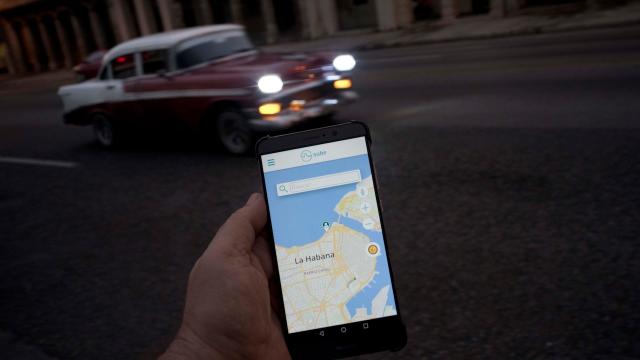If you want to get online in Cuba, you currently have to go to a government-sanctioned hotspot, build your own illicit hotspot using illegal routers, or create a hotspot with an expensive 3G connection on your phone. But that will soon change, according to the Associated Press.
Cuba’s Ministry of Communication (Mincom) announced on Wednesday that the government will allow people to set up their own private wifi networks at home. State-owned telecom company Etecsa, the only internet provider on the island, will continue to operate without competition but the country will reportedly liberalize policies that prohibited the importation of routers for personal use. The changes are expected to be formally allowed by this July.
Cuba has historically had some of the most restrictive internet laws in the world, banning any news website that’s critical of the Cuban government. But the past few years have seen slow but steady change, allowing people to get online in a way that they hadn’t before. Cubans were only recently granted access to mobile internet on their phones in December 2018.
As the German news outlet DW notes, the changes around private wifi could potentially also allow for private internet cafes to operate soon, though that’s just speculation at this point. State-run internet cafes were first opened in 2013, but the enormous cost is still prohibitive for the majority of Cubans.
An Etecsa data package for 600 megabytes costs roughly $10, but that’s a problem when the average salary in Cuba is just $43 to $72 per month.
From DW:
Announcing the measures, Mincom said the changes would: “Contribute to the computerization of society, the well-being of citizens, the sovereignty of the country and the prevention against the harmful effects of non-ionizing radiation.”
Google tried to establish a presence in Cuba back in 2014, even before President Barack Obama made moves to normalize relations with the Communist country. But Cuba has been hesitant to let too many outsiders control its information infrastructure—perhaps with good reason. The U.S. tried to create its own anti-government “Cuban Twitter” from 2009 until 2012 under a social network called ZunZuneo, operated through text messages.
ZunZuneo is based on Cuban slang for a hummingbird’s tweet. The goal was to artificially create a popular uprising against the Cuban government, which obviously failed.
That program, run through the U.S. Agency of International Development (USAID) was shut down but only became public after a reporter from Associated Press broke the story in 2014. Google signed a deal this past March to create its own internet connection to Cuba, though the details are still sketchy.
Google did not immediately respond to Gizmodo’s request for comment.
